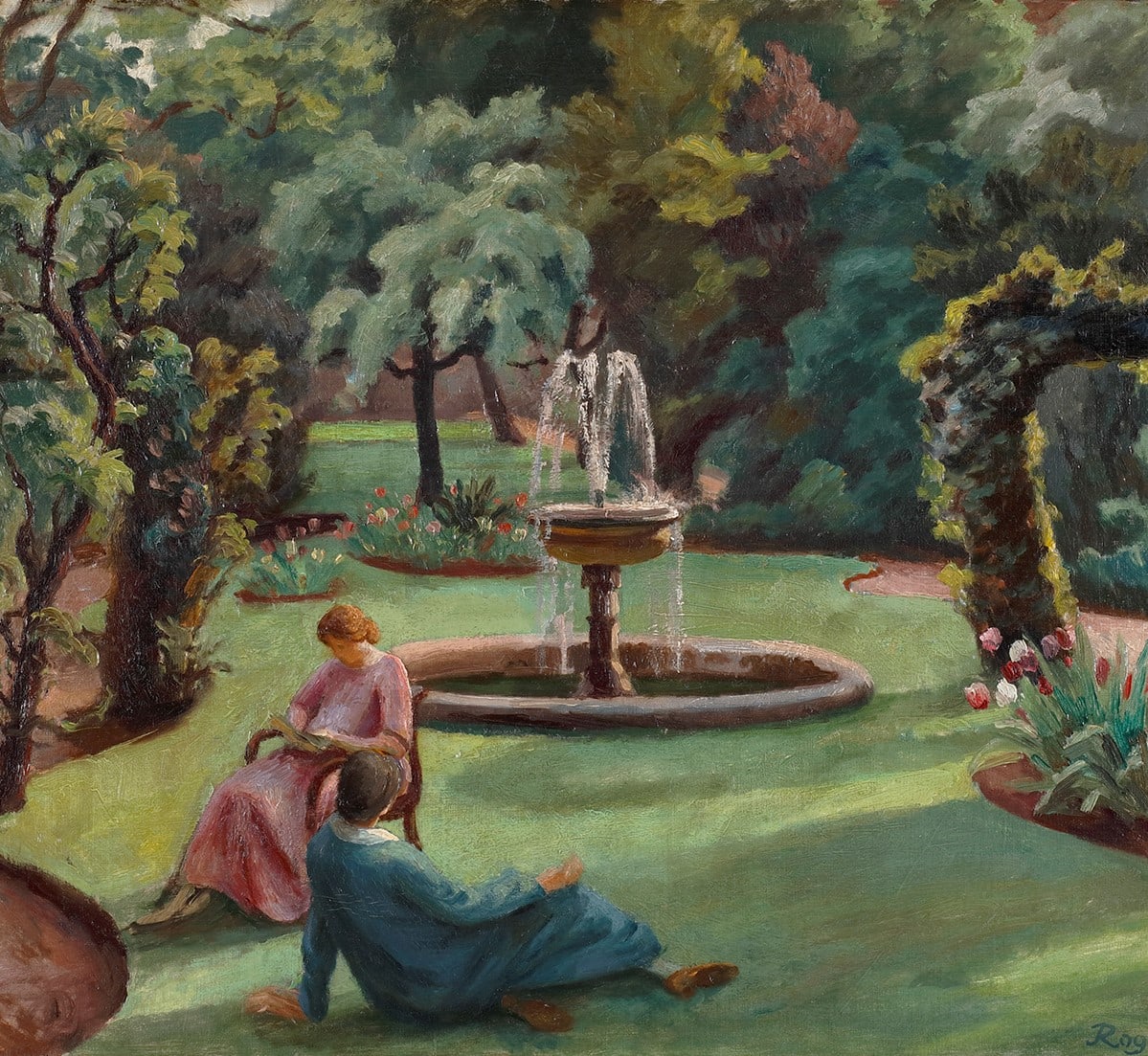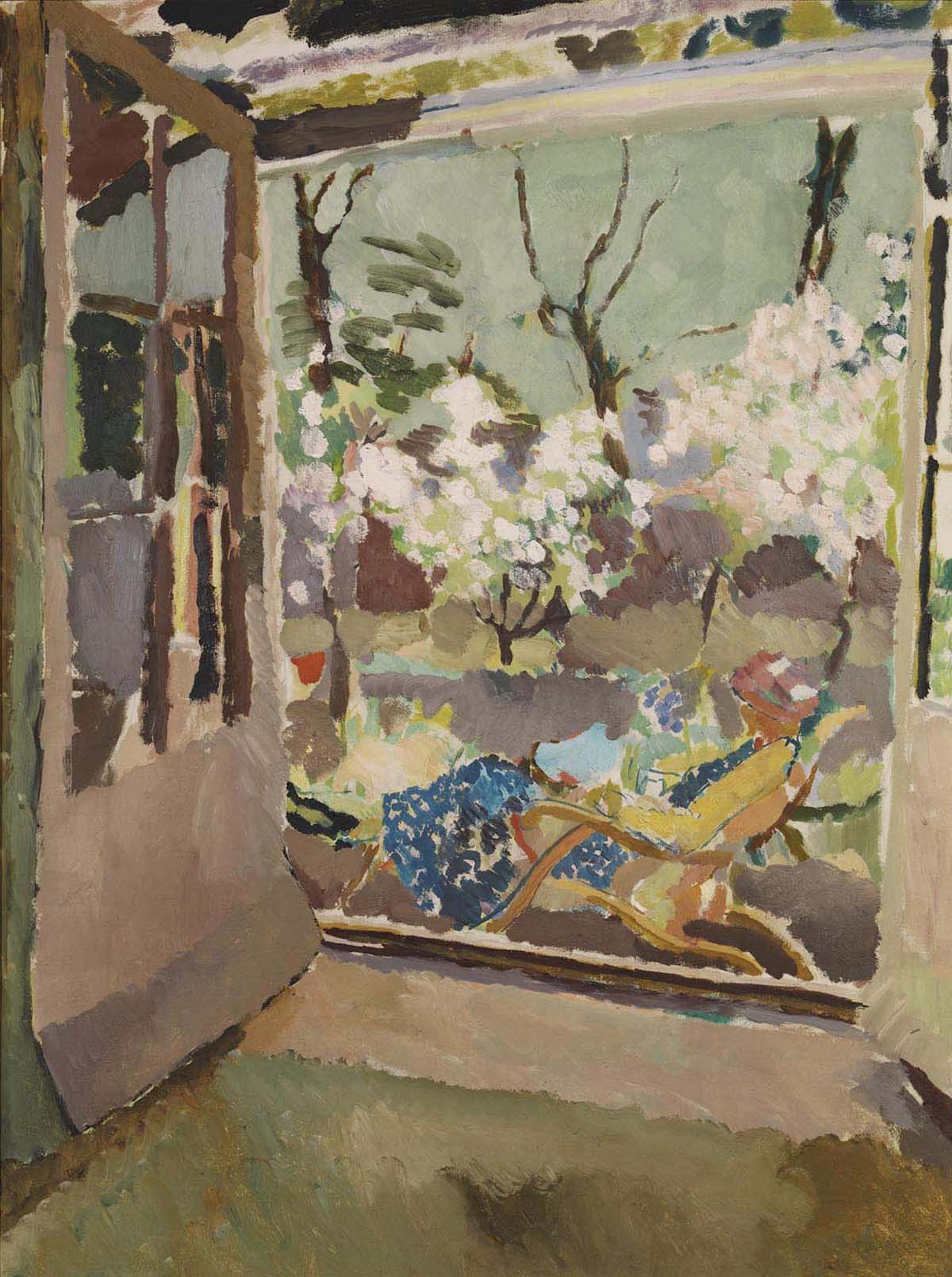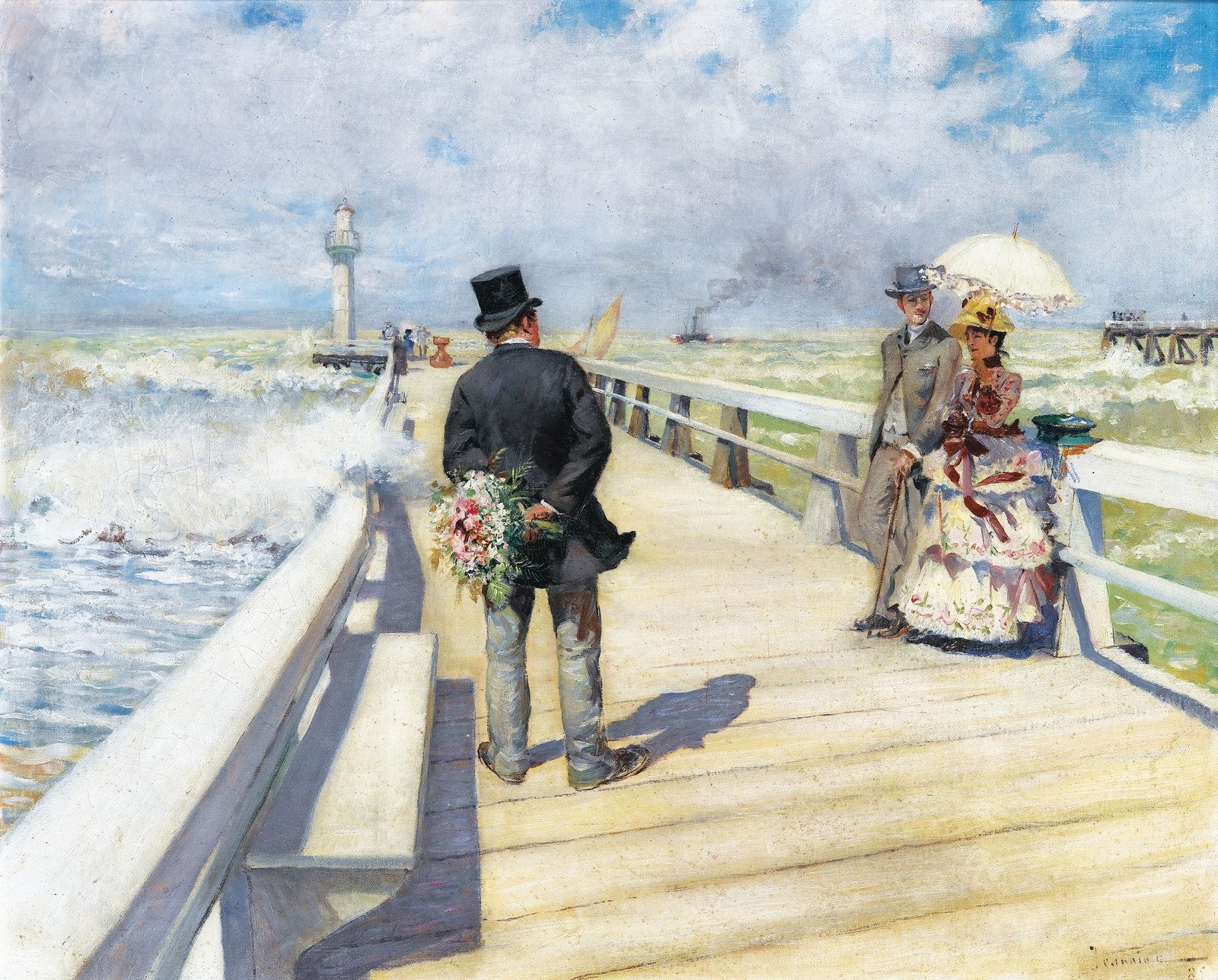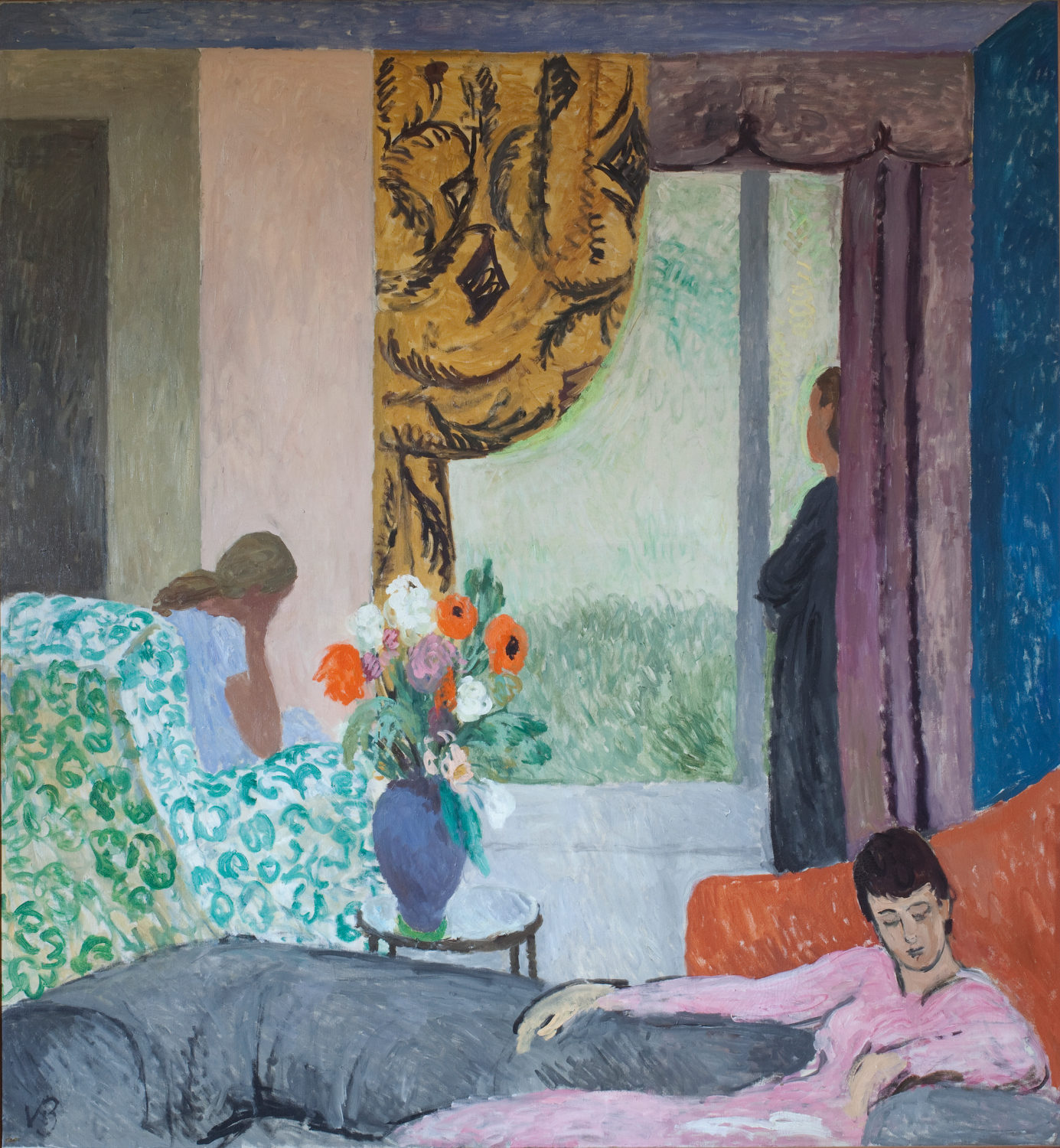Euphemia Charlton Fortune (1885-1969) was an American Impressionist artist from California.
She was trained in Europe, New York and San Francisco.
She painted many portraits as well as landscape views of California and European sites.
In midlife she turned to liturgical design. She signed her paintings "E. Charlton Fortune", which helped conceal her gender.








